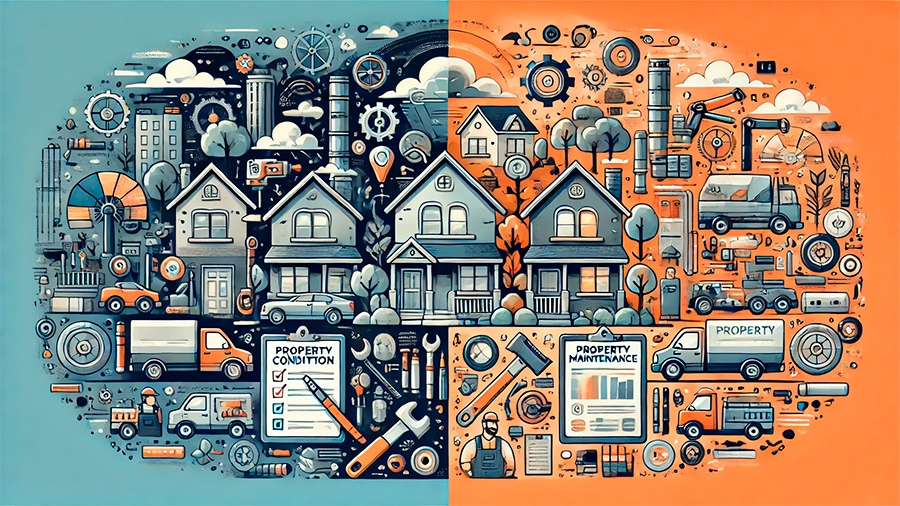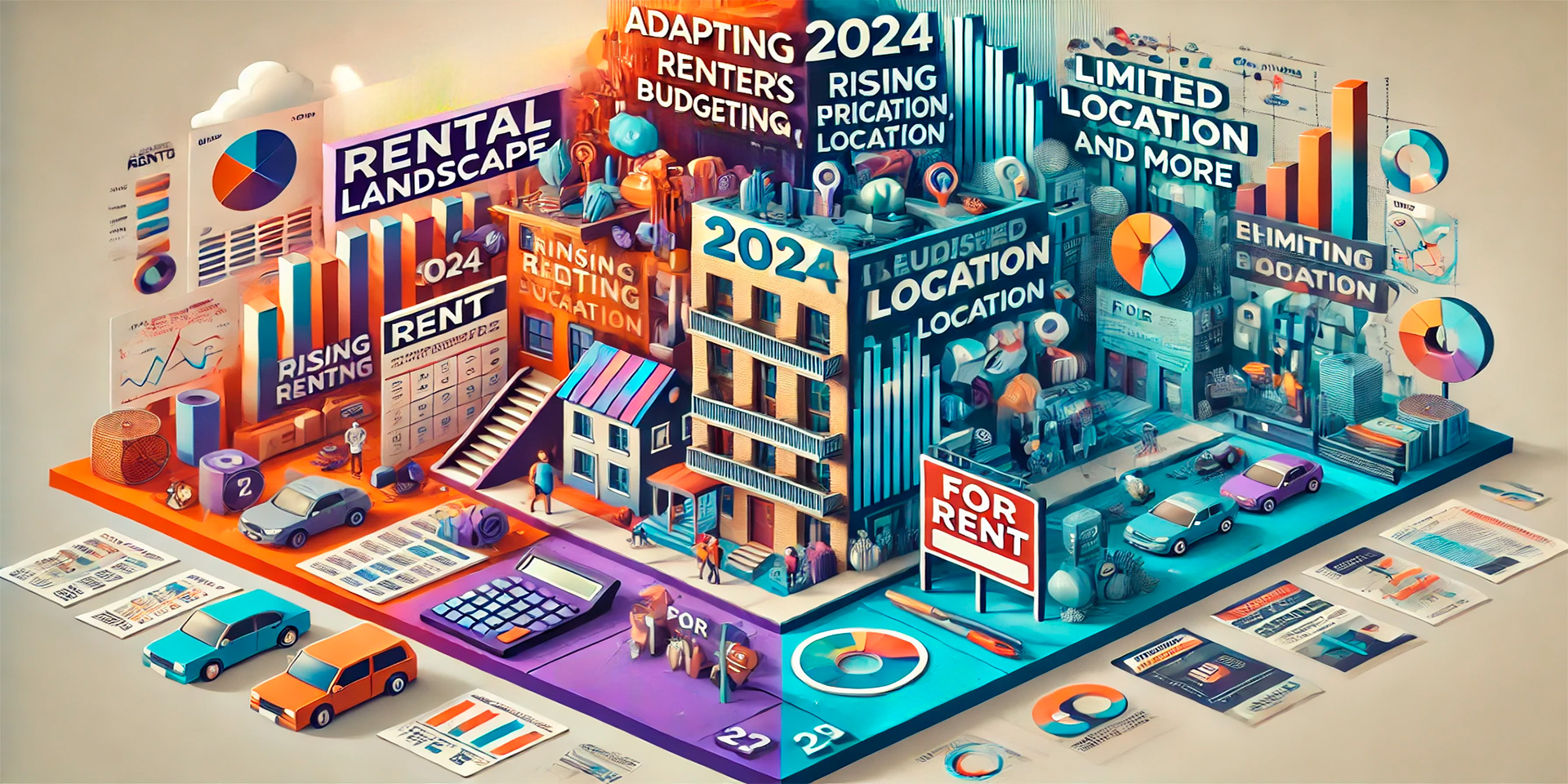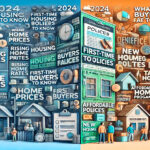The rental market is evolving, influenced by economic shifts, changing housing demand, and new trends in urban living. As a renter, navigating the complexities of this changing landscape can be challenging, but understanding what to prioritize when looking for a home can help you make smarter decisions. In 2024, the rental market is shaped by factors like rising rental costs, increased competition, and evolving renter preferences. This guide will help you identify what to look for when renting a home this year, whether you’re moving into your first apartment or searching for a better fit for your lifestyle.
Rental Costs and Budgeting
One of the most critical factors to consider when renting in 2024 is your budget. Rental prices are influenced by a variety of factors, including inflation, interest rates, and local market conditions. In many areas, rental costs have been steadily rising, making it essential to set a clear budget before beginning your search.
As housing affordability continues to be a concern in many cities, renters need to account for not only the rent itself but also additional costs like utilities, parking fees, and maintenance charges. It’s important to have a clear understanding of your total monthly housing expenses to avoid overcommitting financially.
- Evaluate whether utilities are included in the rent or if you will need to pay them separately. In some cases, landlords offer packages where water, electricity, or gas are bundled into the rent.
- Look at the cost of living in the neighborhood, as some areas may have higher costs for everyday necessities like groceries and transportation.
- Consider the security deposit, application fees, and any upfront costs such as moving expenses, which can add to the initial financial burden.
Setting a realistic budget based on your income and future financial goals can help you find a rental property that fits your lifestyle without straining your finances.
Location and Accessibility
Location has always been a key consideration for renters, but in 2024, accessibility and convenience are becoming even more crucial. As more people continue to work remotely or adopt hybrid work models, proximity to the workplace may no longer be the top priority for many renters. Instead, other factors such as access to amenities, green spaces, public transportation, and quality of life are driving location preferences.
When choosing a rental location, consider:
- Proximity to essential services such as grocery stores, healthcare facilities, and schools if you have children. Easy access to these services can improve your day-to-day living experience.
- Walkability and public transportation options, especially if you prefer to limit car usage. Some urban areas are becoming more pedestrian-friendly, offering a higher quality of life for those who don’t rely on cars.
- Access to parks, recreational areas, and community spaces can provide a better work-life balance, particularly for those spending more time at home.
The rise of remote work has also led to increased demand in suburban and rural areas, as renters prioritize larger spaces, quieter environments, and lower living costs compared to densely populated urban centers. Before choosing a location, consider whether you want the hustle and bustle of city life or the tranquility of more suburban or rural settings.

Property Condition and Maintenance
Ensuring that a rental property is well-maintained and in good condition should be a top priority when searching for a home. In 2024, more renters are becoming selective about the quality of the property they choose, and it’s essential to inspect the unit for any potential issues before signing a lease.
When evaluating a rental property:
- Pay attention to the overall cleanliness and condition of the unit, including the age of appliances, plumbing, electrical systems, and any visible signs of damage or wear. Ask the landlord about recent renovations or updates to the property.
- Inquire about how maintenance requests are handled. A reliable landlord or property management company should have clear procedures in place for addressing repairs and maintenance issues quickly and efficiently.
- Check whether the property offers modern conveniences, such as energy-efficient appliances, which can help reduce utility costs and align with sustainability goals.
It’s also important to understand what responsibilities you’ll have as a tenant regarding maintenance and repairs. Some landlords expect tenants to handle minor maintenance tasks, while others cover all upkeep and repairs. Clarifying these expectations upfront will help you avoid misunderstandings later.
Lease Terms and Flexibility
Lease terms are another important factor to consider in 2024, especially as the rental market becomes more competitive and renter preferences evolve. Flexibility in lease agreements is increasingly valued by renters, particularly those who may need to relocate for work or prefer shorter-term commitments.
When reviewing lease agreements:
- Consider the length of the lease. While a 12-month lease is common, some landlords offer shorter or longer lease options, depending on your needs. If you’re unsure about staying in the same place for a long time, look for a lease with the flexibility to renew or go month-to-month after the initial term.
- Examine any penalties for breaking the lease early, as job relocations or personal changes might require you to move unexpectedly. Some leases include options for subletting, which can offer a more flexible exit if needed.
- Review rent increase clauses. Some landlords may include provisions for increasing rent annually or after the lease term ends. Understanding these terms will help you avoid surprises when it’s time to renew.
Flexibility is becoming a highly sought-after feature in rental agreements, and being aware of the specific terms of your lease can help you make an informed decision that fits your lifestyle and future plans.
Amenities and Building Features
In 2024, renters are placing more emphasis on the amenities and building features offered by rental properties. Whether you’re renting an apartment in a large complex or a standalone home, the amenities available can significantly enhance your living experience and contribute to your decision-making process.
Some amenities to consider include:
- In-Unit Features: Renters today expect modern conveniences like updated kitchens, in-unit washers and dryers, and high-speed internet connections. These features can make daily life more comfortable and save you time.
- Building Amenities: Many apartment complexes now offer fitness centers, coworking spaces, and communal areas like rooftop lounges, which can provide added value for tenants. Look for amenities that align with your lifestyle and interests.
- Security: Safety is a top priority, especially in urban areas. Make sure the building has secure access, whether through gated entry, video surveillance, or a doorman. Also, ask about the neighborhood’s safety record.
While amenities can add to the appeal of a rental property, it’s important to weigh their costs. Some properties include amenity fees in the rent, while others charge separately. Be sure to factor these additional costs into your overall budget.

Community and Quality of Life
Another key consideration when renting in 2024 is the sense of community and overall quality of life that the neighborhood and building offer. Whether you’re moving into a large apartment complex or a small rental home, the surrounding environment and community can have a significant impact on your satisfaction as a renter.
When assessing the community:
- Consider the neighborhood’s vibe and how well it aligns with your lifestyle. Some renters prioritize quiet, family-friendly neighborhoods, while others prefer more vibrant areas with nightlife, dining, and entertainment options.
- Check if the building fosters a sense of community. Many modern apartment complexes now offer social events, communal spaces, and amenities that encourage interaction among tenants.
- Take a close look at the noise levels, both inside the building and in the surrounding area. Noise from busy streets, nearby construction, or thin walls between units can significantly affect your quality of life.
A welcoming and supportive community can make your rental experience more enjoyable, so it’s worth exploring whether the property fosters an environment where you’ll feel comfortable and at home.
Conclusion: Adapting to the 2024 Rental Market
As the rental market continues to evolve in 2024, renters must adapt to changing trends, rising costs, and shifting demands. By carefully considering factors like rental costs, location, property condition, lease terms, and amenities, you can find a rental property that meets your needs and fits your budget. Staying informed about these key elements will help you navigate the competitive rental landscape and make the best possible decision for your living situation this year.






